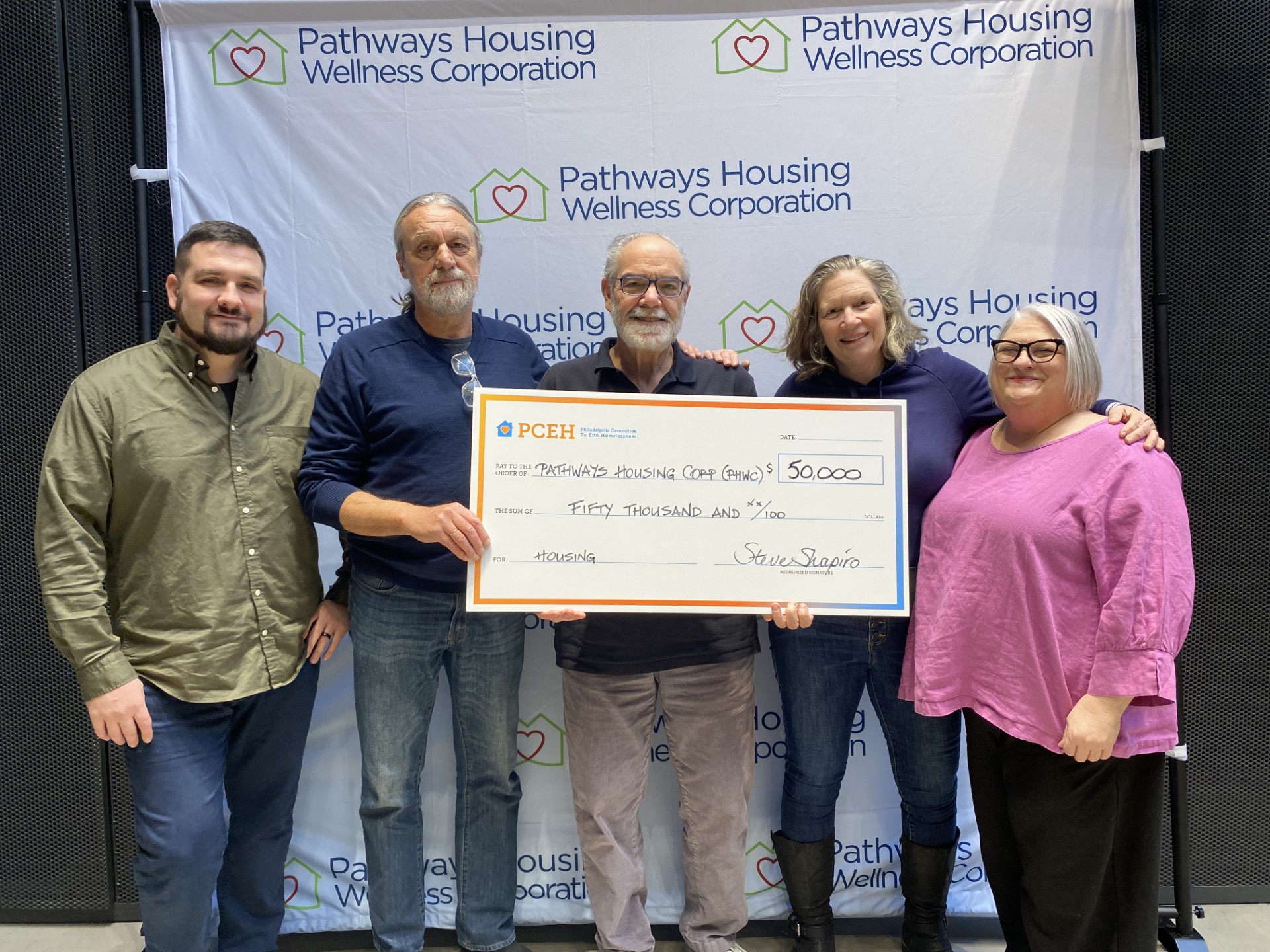Coming Full Circle: A Grant from My First Real Job Brings New Hope for Affordable Housing

Thirty-eight years ago, I walked through the doors at 802 N. Broad Street at the Philadelphia Committee to End Homelessness (PCEH) for my first real job. At the time, I could not have imagined how deeply that experience would shape my journey or how, decades later, our paths would cross again in such a meaningful way.
Today, I am honored to share that PCEH has awarded a $50,000 grant to Pathways Housing Wellness Corporation—an organization I now lead—to support the development of affordable housing for individuals experiencing homelessness, many of whom live with disabilities. This moment is not just about funding; it’s about a full-circle connection to a mission that continues to be close to my heart.

The Work of PCEH: A Legacy of Advocacy and Impact
Founded in the 1980s, the Philadelphia Committee to End Homelessness has been a steadfast advocate for people experiencing homelessness in the city. From the beginning, PCEH has focused on not just providing shelter, but addressing the root causes of homelessness through policy advocacy, direct services, and the promotion of permanent housing solutions. Their work has helped shape housing-first policies that recognize stable housing as the foundation for addressing other challenges, such as employment, healthcare, and mental health support.
One of PCEH’s most significant contributions has been its commitment to long-term, systemic solutions. Over the years, the organization has helped implement innovative housing programs, collaborated with government agencies and nonprofits, and remained a voice for the most vulnerable Philadelphians. Their work has demonstrated that homelessness is not inevitable—it is a solvable crisis when met with compassion, dedication, and strategic action.
From Outreach to Housing Development: A Personal Journey
When I first started at PCEH, my work was direct and personal. On cold winter nights, I joined outreach teams to bring warm meals, sandwiches, and cups of coffee to people who called Philadelphia’s pavements home. I listened to their stories, shared moments of warmth in the freezing air, and witnessed the daily struggles they faced. Those experiences left a deep imprint on me. I learned that a simple meal could offer comfort, but what people truly needed was a place to call home—a stable foundation from which they could reclaim their lives.
That understanding became the driving force behind my work. It’s what led me to create Pathways Housing Wellness Corporation, an organization committed to developing affordable housing in a city with desperate needs.
Housing Disparities: The Intersection of Race, Poverty, and Health
While homelessness affects individuals from all walks of life, it is deeply intertwined with systemic racial and economic inequities. In Philadelphia and across the country, people of color—particularly Black and Indigenous communities—are disproportionately affected by housing instability due to centuries of discriminatory housing policies, economic marginalization, and structural racism.
Historical injustices such as redlining, racially restrictive covenants, and exclusion from homeownership opportunities have left a lasting impact. Today, Black Philadelphians make up roughly 40% of the city's population but account for 70% of people experiencing homelessness. The racial wealth gap, coupled with wage disparities and rising housing costs, has made stable, affordable housing out of reach for many.
The consequences of housing instability extend far beyond shelter. Housing is a fundamental social determinant of health, and those without stable housing face significantly higher risks of chronic illness, mental health disorders, and premature mortality. Individuals experiencing homelessness are more likely to suffer from conditions such as diabetes, hypertension, and respiratory illnesses, often exacerbated by a lack of consistent medical care. The COVID-19 pandemic laid these disparities bare, as marginalized communities faced higher rates of infection and death, largely due to overcrowded living conditions, lack of access to healthcare, and economic precarity.
Additionally, people with disabilities—who are also overrepresented among those experiencing homelessness—face significant barriers to stable housing. Without accessible, affordable housing options and supportive services, many individuals with disabilities remain in cycles of desperate poverty and homelessness.
A Full-Circle Moment: The Grant from PCEH
Now, decades later, receiving this generous grant from PCEH feels like a homecoming of sorts. This funding will directly support our efforts to develop housing that provides not just four walls, but stability, dignity, and a true opportunity for individuals to reclaim their lives.
This grant represents more than just financial support; it’s a reaffirmation of the values I have carried with me for decades. It’s a testament to the enduring power of organizations like PCEH that continue to fight for those who are too often forgotten. And it’s a reminder that when we dedicate ourselves to a cause, our efforts can ripple through time, reconnecting us in ways we never expected.
With PCEH’s support, Pathways Housing Wellness Corporation is moving forward in developing homes that will provide a fresh start for individuals who have long struggled with housing instability. I am grateful for this opportunity to carry on the work that first inspired me all those years ago—and to do so with the support of an organization that helped shape my early understanding of advocacy and service.
To everyone who believes in the power of second chances and lasting change: thank you for being part of this journey. The work seems overwhelming at times, especially these days, but hand in hand, we continue to push forward.